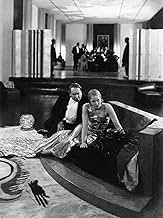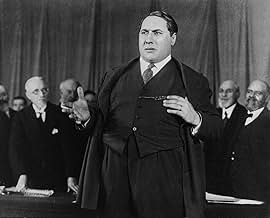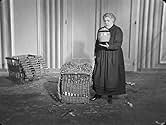Aggiungi una trama nella tua linguaThe business tycoon Nicolas Saccard is nearly ruined by his rival Gunderman, when he tries to raise capital for his company. To push up the price of his stock, Saccard plans a publicity stun... Leggi tuttoThe business tycoon Nicolas Saccard is nearly ruined by his rival Gunderman, when he tries to raise capital for his company. To push up the price of his stock, Saccard plans a publicity stunt involving the aviator Jacques Hamelin flying across the Atlantic to Guyana and drilling ... Leggi tuttoThe business tycoon Nicolas Saccard is nearly ruined by his rival Gunderman, when he tries to raise capital for his company. To push up the price of his stock, Saccard plans a publicity stunt involving the aviator Jacques Hamelin flying across the Atlantic to Guyana and drilling for oil there, much to the dismay of Hamelin's wife Line. While Hamelin is away, Saccard t... Leggi tutto
- Regia
- Sceneggiatura
- Star
- Line Hamelin
- (as Mary Glory)
- Massias
- (as Al. Mihalesco)
- Daigremont
- (non citato nei titoli originali)
Recensioni in evidenza
The tug of war between director and producer resulted in the latter excising thirty minutes from the film and not until its restoration half a century later were the lost scenes restored. Indeed it was not until the restoration that the film's acclaim finally matched its reputation and it has belatedly been acknowledged as one of the true masterpieces of silent cinema. As a bonus this same restoration has gifted us a highly charged score for piano composed and played by Jean-Francois Zygels.
The technical virtuosity of this film is simply stunning with the sweeping camerawork of Jules Kruger, low and high angle shots and Eisensteinian montage. L'Herbier's love of Art Deco is again evident in the magnificent sets designed by Lazare Meerson and André Barsacq. We are also treated to spectacular scenes in the Bourse, the fictitious World Bank, the Place de l'Opéra and the piéce de resistance, the financier Saccard's evening party.
L'Herbier has made sure that his film's immensity does not diminish the characters. This is surely Pierre Alcover's finest hour as Saccard, a monster of greed and rapacity who is also a pitiful creature. By arrangement with UFA the film also stars Brigitte Helm and Alfred Abel, both fresh from 'Metropolis'. Miss Helm as Baroness Sandorf has never been quite as sinuous and sensuous as she slithers around encased in Jacques Manuel's fabulous costumes. As she writhes on the sofa she epitomises the sheer carnality of wealth. The slight frame of Alfred Abel as Gunderman is in striking contrast to the corpulence of Alcover as his arch rival and his reptilian-like portrayal makes one think what a marvellous Professor Moriarty he would have made. As a contrast to the slinky Baroness we have the full-figured Marie Glory who is at her most appealing here in probably her finest role as Line Hamelin who is intoxicated by the lifestyle offered by Saccard's money but is not prepared to pay the price required. Dramatically effective is a rare appearance on film of Yvette Guilbert, former cabaret artiste immortalised by Toulouse-Lautrec, as a figure of Doom whose presence has always haunted Saccard and is there to witness his downfall.
This monumental piece is L'Herbier's greatest achievement and in his own words, 'the summit of my silent career'. No true cinéfile I am sure would disagree.
A superb silent classic, exquisitely well made and all too infuriatingly relevant even decades later
All that's to say nothing of the many, many extras on hand, nor those fetching facets like costume design, hair, and makeup that tend to be overlooked. It's just as impressive that the feature manages to do all this with tale set in contemporary France, rather than a period piece or a work of fantasy or sci-fi; it's certainly more infrequent that cinematic storytelling of a more realistic nature is able to conjure such visual wizardry - but here we are. And then there's the plot: a vortex of greed, manipulation, corruption, deceit, and the destruction that follows in the wake of such iniquities, as infuriatingly relevant in 2023 as it was ninety-five years ago, or decades prior when Émile Zola's novel was written, or further back still when it was set. There are no surprises here, for wealth, power, and the pursuit or promise of either only ever bring out the worst in people; there are no singular lightning bolts of brilliance in the screenplay, as all the best creativity the film boasts is found in its craftsmanship. Nonetheless the story is absorbing and compelling, and ably keeps us engaged from start to finish, and as scenes are both written and directed we get no few moments that are especially potent. It helps that the cast is terrific across the board, with Pierre Alcover, Brigitte Helm, and Marie Glory particularly standing out not just for the amount of time they have on-screen, or their prominence in the story as we see it, but definitely too for the strength of their vibrant acting of range and nuance.
I don't think it's unfair to say that the building blocks of the movie kind of outshine the tale it imparts. This isn't to say that the writing is weak, but for as excellent as it may be, the title's construction is altogether extraordinary. Then again, I'm inclined to think that the plot is better about conveying major ideas rather than minute details, and also advances somewhat gradually given the length of over two and one-half hours - with a fair amount of story reserved for just the last twenty minutes. In fairness, should one read up on the history of 'L'argent' even the slightest bit it's clear that the version that now exists is not what L'Herbier originally envisioned, so one can reasonably assume that some elements were lost over time. In any event, however much one wishes to him and haw about This and That, by and large the fact remains that this is a superb, fabulously well made silent classic that continues to hold up all too well. What excitement it may not wholly, immediately foster with its narrative, it more than makes up for with the genius of the work behind the scenes, and the result all around is unquestionably grand. As a matter of personal preference some of its contemporaries may stand taller still, but one way or another 'L'argent' is fantastic, highly deserving of recognition and remembrance, and it earns a solid recommendation for anyone who appreciates older cinema.
Pierre Alcover who plays Saccard, the treacherous financier who falls for the hapless heroine whose pilot lover has conveniently flown to Equatorial Guinea to drill for oil, is quite good, but Brigitte Helm, the comely object of his affections is just awful. She's the kind of actress who would overact when pretending to be asleep, and when she is on the brink of suicide she wanders into Saccard's office and stumbles around as if wounded by a sniper's bullet. Saccard looks like the manipulative weasel that he is. He fancies himself as a Napoleon of the financial world but, like Napoleon, he bites off more than he can chew when he locks horns with the urbane Gundermann.
The film does have some saving graces. L'Herbier's use of the camera is sublime, and gives the bored viewer something to concentrate on when the sluggish pace gets too much. Perhaps that is why he chose to film as a silent – the use of sound, while making the story easier to convey, would have restrained the camera and robbed the film of what vitality it possesses. The film does a good job of illustrating the corrupting influence of money, only over-emphasising its message on the rare occasion. As the character's become more depraved and self-absorbed their surroundings become more opulent, their clothes more refined, and it is clear that they are becoming prisoners of their possessions. There's also a great last scene – but you have to wait an unrealistically long time to get to it.
Films about the financial system (not necessarily about Wall street) are however nothing new. In 1928 Marcel L'Herbier adapted a novel of the same name by Emile Zola. The novel of Zola is situated in the second half of the 19th century but L'Herbier modernizes the story to the roaring twenties. Contrary to the above mentioned movies L'Herbier made his film before the crash of 1929.
By the way in 1983 Robert Bresson made a film of the same name. This is however not an adaptation of the same novel by Zola, but an adaptation of "The forged coupon" by Leo Tolstoy.
In "L'argent" there are two rival capitalists. The hot blooded predator Nicolas Saccard (played by Pierre Alcover) and the cold blooded reptile like Alphonse Gunderman (played by Alfred Abel). Neither of them is very sympathetic.
On top of these characters Brigitte Helm plays with baroness Sandorf a sort of "femme fatale" avant la lettre. Avant la lettre because the film noir would appear much later.
The storyline is not the best part of the movie. It is rather simple and is rushed in the last fifteen minutes. The storyline revolves around the slogan "Money is a faithfull servant but a terrible master". This combination of a quasi profound slogan and simple storyline reminded me of the slogan "Head and hands need a mediator. The mediator between head and hands must be the heart!" from "Metropolis" (1927, Fritz Lang) a year earlier. This is not the only link between the two films, because Alfred Abel and Brigitte Helm also played in "Metropolis".
The strong point of "L'argent" is not the storyline but the ambiance. With very innovative cinematograhy the film sketches the hectic, oppurtinistic and sometimes panicky atmosphere at the stock exchange. Tribute to cinematograhper Jules Kruger, who also made "Napoleon" (1927) with Abel Gance.
Lo sapevi?
- QuizThere are 1,952 shots in the film, with an average shot length of just six and a half seconds.
- Versioni alternativeThe film was shown to the French press in December 1928 in a cut lasting about 3 hours and 20 minutes, however by the time the film had its first public screening in January 1929, producer Jean Sapene had ordered the length to be cut by half, unbeknownst to director Marcel L'Herbier and much to his and fellow filmmaker Marcel Carné's dismay. Much later, the film was restored to a running time of 2 hours and 25 minutes.
- ConnessioniFeatured in The Twentieth Century: The Movies Learn to Talk (1959)
I più visti
Dettagli
- Data di uscita
- Paese di origine
- Lingue
- Celebre anche come
- Money
- Luoghi delle riprese
- La Bourse, Paris 2, Parigi, Francia(interior: shots from the ceiling covering the crowd movement of buying and selling orders)
- Aziende produttrici
- Vedi altri crediti dell’azienda su IMDbPro
Botteghino
- Budget
- 5.000.000 FRF (previsto)
- Tempo di esecuzione3 ore 15 minuti
- Colore
- Mix di suoni
- Proporzioni
- 1.33 : 1

































